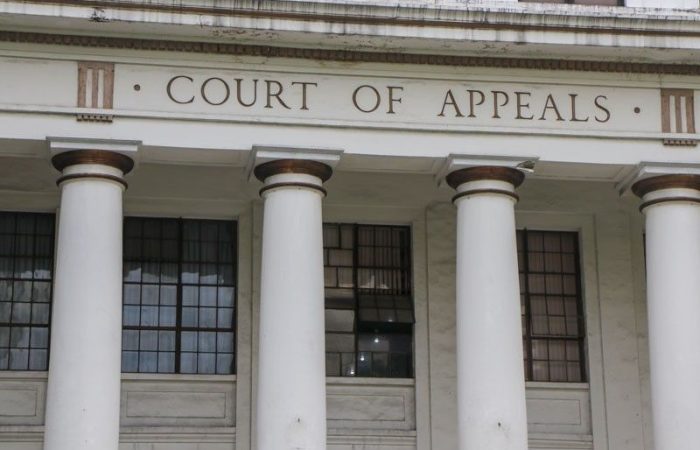The Problem of Personal Jurisdiction in Cases of Online Defamation
By Susann Nordvik
As the Information Age reaches the pinnacle of its estate, courts continue to struggle with questions of jurisdiction over disputes arising out of information and commentary posted online, usually on social media. The courts in most jurisdictions have managed to find ways to shoehorn traditional notions of personal jurisdiction into the narrow slipper of internet discourse. Nevertheless, there are classes of cases that continue to slip through the cracks in the carefully crafted framework.
For example, most courts have taken what we would now consider “old timey” analyses of jurisdiction based on writing and telephone calls and applied them to online business transactions. This is fine, because in the old days, one might be greeted by a door-to-door salesman, or receive a cold call from an enterprising telemarketer, and the resulting transaction is not unlike the type of situation one might have today by placing an order on Amazon. Prior notions of “systematic contacts” and “minimum contacts” would still apply quite readily. Thus, when you have an entity like Amazon, which has warehouses in many states across the country, and which processes billions of dollars in transactions annually, visiting virtually every home at least once, one could probably say that Amazon maintains “systematic” business contacts in every state in the Union. Therefore, Amazon as an entity could reasonably anticipate being haled into court in any one of the states for any issue that arose.
However, what happens when someone gets in an internet scrap with a “keyboard cowboy,” on Twitter, Reddit, or Facebook, only to subsequently find their good name associated with all kinds of bad conduct and various libelous references? In those cases, the bad actor is not always easy to track down, and the “support” coming from the various tech giants is almost universally underwhelming. Nevertheless, if by some miracle you are able to divine the identity of the transgressor, but you also find out (wait for it) he is on the other side of the country. Now what? Conventional wisdom would suggest that if you wanted to bring the scallywag before the court, you would have to file in his home state and county. This is simply because you have a private actor sending messages out into the Twittersphere from the safety of his or her own home, and who may not even be aware of your location, much less intentionally availing him or herself of the benefits of the law of your home state.
In general terms, the idea of being sued in a court in a foreign jurisdiction is somewhat daunting, as you may be unable to travel and defend yourself in a meaningful way from 2,000 miles away. This is why the United States Supreme Court in its landmark decision International Shoe Co. v. Washington, 326 U.S. 310, 316 (1945) determined that the Due Process Clause demands that personal jurisdiction must be exercised only if doing so does not offend “traditional notions of fair play and substantial justice.” Id. Virginia’s long arm statute, Virginia Code, § 8.01-328.1, was crafted with the concepts espoused by the International Shoe Court in mind. However, application of those concepts in the world of Reddit and Facebook has proven challenging.
Although the Virginia Supreme Court has not addressed the specific issue outlined in my “keyboard cowboy” example, you can develop hypotheses regarding the likely outcome of such a case by review of what courts have held when a nonresident writes a defamatory letter outside the forum state and mails it into the forum. Previous cases have determined that such an act is not a “tortious act” within the forum as required under the Commonwealth’s long arm statute. See St. Claire v. Righter, 250 F. Supp. 148, 151 (W.D. Va. 1966) disapproved on other grounds, Beaty v. M.S. Steel Co., 401 F.2d 157 (4th Cir. 1968); Loria v. Regelson, 38 Va. Cir. 283, 287 (1995). Similarly, defamatory remarks made by a nonresident over the telephone to a person receiving the call in Virginia are considered to have originated outside the forum and, thus, do not constitute an act within the state. Bochan v. La Fontaine, 68 F. Supp. 2d 692, 700 n.26 (E.D. Va. 1999).
In St. Claire v. Righter, the United States District Court for the Western District of Virginia found that a defamatory letter sent to Virginia from outside the state did not establish personal jurisdiction over the defendant under the “tortious act” provision of the long arm statute. 250 F. Supp. at 151. The court reasoned that while the tortious injury occurred in Virginia, the harm was actually “caused by the act of writing and mailing the letters outside of Virginia.” Id.
Although the distinction may seem impossibly subtle, there is actually good reasoning behind it. This is due to the manner in which the various provisions of the long arm statute work together. Virginia Code, § 8.01-328(A)(3) provides that a court may exercise jurisdiction when an act within the Commonwealth causes tortious injury. By contrast, § 8.01-328.1(A)(4) applies to tortious injury arising from an act outside the Commonwealth. However, this latter provision only applies when the tortfeasor “regularly does or solicits business, or engages in any other persistent course of conduct, or derives substantial revenue from goods used or consumed or services rendered, in this Commonwealth.” Consequently, the St. Claire court determined that a contrary holding would render Code § 8.01-328.1(A)(4) “completely obviated, as every set of facts which give rise to tortious injury could be brought within the terms of paragraph (3).” 250 F. Supp. at 151.
This rationale has been extended by the federal courts reviewing conduct occurring over the internet. In Bochan v. La Fontaine, the United States District Court of the Eastern District of Virginia addressed the issue of whether defamatory remarks posted on the internet constitute a tortious act in Virginia under Code § 8.01-328.1(A)(3). 68 F. Supp, 2d at 694-703. In Bochan, Texas and New Mexico residents separately posted defamatory remarks about a Virginia resident on an internet newsgroup. Id. at 695. The court held that Virginia’s long-arm statute did not grant jurisdiction over the New Mexico resident under (A)(3). Id. at 700. The court rejected the plaintiff’s argument that the tortious act occurred in Virginia merely because the defamatory remarks that originated in New Mexico were published in Virginia. Id. at 700 n.26. However, the court noted that because the statements made by the Texas resident were transmitted through a server that was physically located in Virginia, this constituted an act within the Commonwealth, and subject to jurisdiction under § 8.01-328(A)(3).
At least one Circuit Court, Nathan v. Takeda Pharmaceuticals America, Inc., (Fairfax Cir. 2011) applied the rationale of Bochan and left open the possibility of exercising personal jurisdiction over a defendant who initiated an email or internet post in another state, but the material was then transmitted through a server or internet provider resident in Virginia. This is an important consideration due to the fact that a number of social media platforms, such as Twitter, utilize data housing and servers provided by Amazon from its Northern Virginia data centers. Consequently, a Virginia resident that has suffered defamation over the internet based on social media posts and commentary may be able to obtain a measure of relief in his or her home state, rather than having to resign themselves to a long-distance legal affair. This possibility is not without its risks, however. The tech giants tend to keep the whereabouts of their server facilities under tight wraps for security and other similar reasons. Thus, the courts are likely to grasp on the idea that a would-be defendant is probably completely unaware that his or her nefarious missive would pass through the Dominion on its way to the “internet of everything.” This returns us to the inevitable questions of purposeful availment, and ever-present balancing act of “traditional notions of fair play and substantial justice.”
If you’re considering a defamation lawsuit in Virginia or Washington, D.C., especially if the defendant is not in the same state as you, please contact us for a consult about personal jurisdiction.




